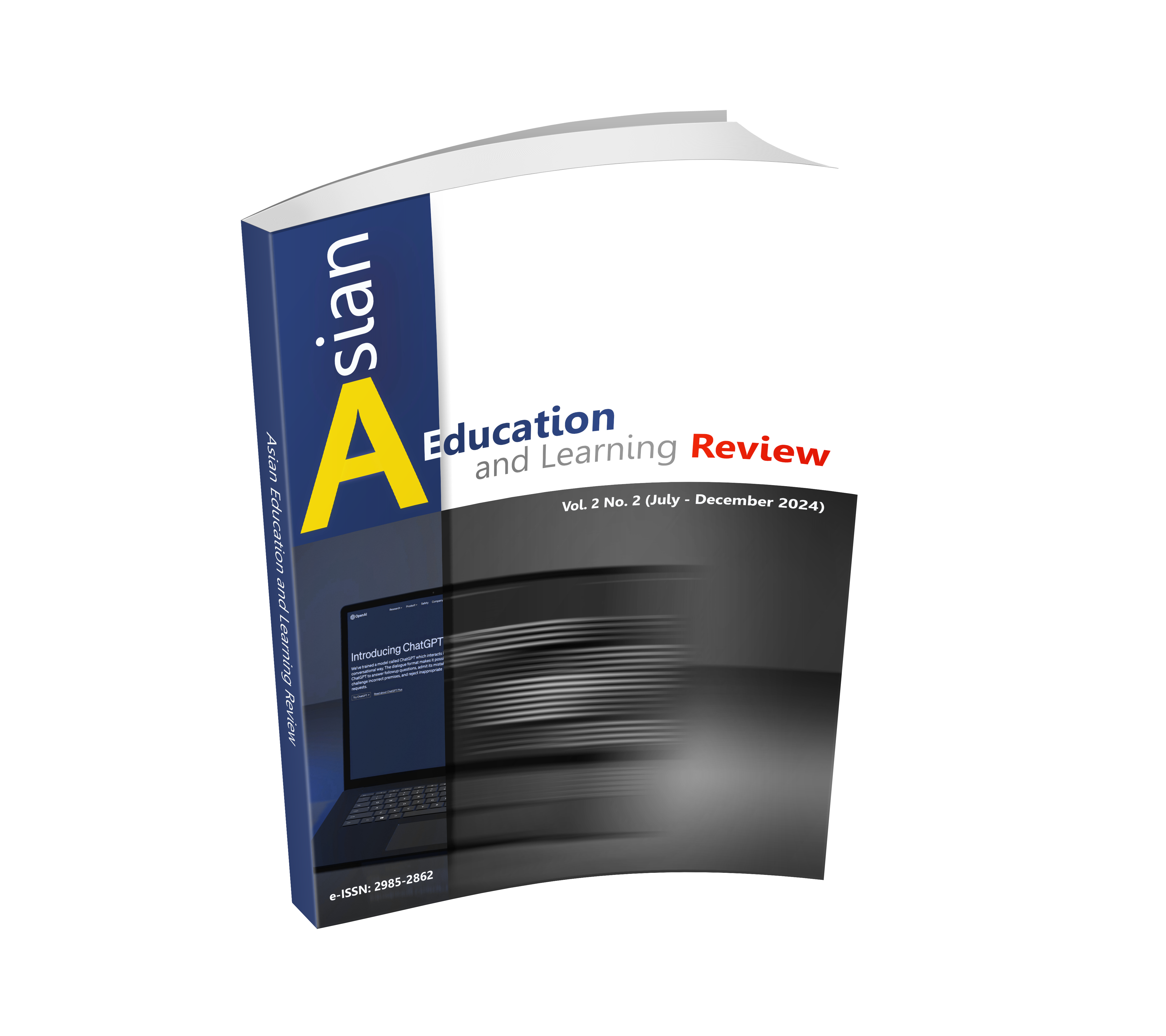COMPONENTS AND GUIDELINES FOR BEING A HAPPINESS WORKPLACE OF VOCATIONAL EDUCATION INSTITUTIONS UNDER THE CIRCUMSTANCES OF EDUCATIONAL TRANSFORMATION
DOI:
https://doi.org/10.14456/aelr.2024.6Keywords:
Educational Transformation, Happiness Workplace, Thailand, Vocational Education InstitutionsAbstract
The purpose of this research is to analyze the components and propose guidelines for being a happy workplace of vocational education institutions under the circumstances of educational transformation. By studying documents and empirical data from in-depth interviews and group discussions with administrators of 10 successful vocational education institutions, then developing a questionnaire with a rating scale about happiness organizations. To inquire about 388 personnel and administrators of vocational education institutions from 38 institutions in the Northeastern region of Thailand. The research results found that being a happy organization of vocational education institutions under the educational transformation situation has 10 components and 75 indicators, including: mental happiness, happiness financial status, social happiness, happiness from family, happiness in body, happiness in brain, happiness from practicing in order, culture and religion happiness, happiness from relaxation, and happiness from atmosphere and environment. It can be confirmed that all 75 indicators are accurate according to actual conditions. As for the guidelines for developing a happy workplace, important issues were found including acceptance of agreements, participation at all levels, positive relationships and working atmosphere, impression of the value of work, and nature of communication.
Downloads
References
Burton, J. (2010). WHO Healthy Workplace Framework and Model: Background and Supporting Literature and Practice. Retrieved from https://iris.who.int/handle/10665/113144.
Gavin, J., & Mason, R. (2004). The Virtuous Organization: The Value of Happiness in the Workplace. Organization Dynamics, 33(1), 379-392.
Hamdan, K., Al-Bashaireh, A., Zahran, Z., Al-Daghestani, A., AL-Habashneh, S., & Shaheen, A. (2021). University Students’ Interaction, Internet Self-Efficacy, Self-Regulation and Satisfaction with Online Education during Pandemic Crises of COVID-19 (SARS-CoV-2). International Journal of Educational Management, 35(3), 713-725.
Heifetz, R. (2009). The Practice of Adaptive Leadership: Tools and Tactics for Changing Your Organization and the World. Massachusetts: Harvard Business Press.
Martin, A., Jones, E., & Callan, V. (2005). The role of psychological climate in facilitating employee adjustment during organizational change. European Work and Organizational Psychology, 14(3), 263-289.
Mousa, M., Massoud, H., & Ayoubi, R. (2020). Gender, diversity management perceptions, workplace happiness and organizational citizenship behavior. Employee Relations, 42(6), 1249-1269.
Office of the Health Promotion Fund. (2013). 123 To be a Happy Workplace. Bangkok: Two Legs Creation.
Office of the National Economic and Social Development Council. (2021). National Economic and Social Development Plan No.13. Retrieved from www.nesdc.go.th/main.php?filename=plan13.
Office of the Vocational Education Commission. (2018). Educational Standards for Vocational Education Level. Bangkok: Office of the Vocational Education Commission.
Phakamach, P., & Ngammeesri, U. (2018). Characteristics of vocational administrators that influence the dedication to the work of educational personnel in the eastern region of Thailand. A paper presented at the 8th National and International Conference on Humanities and Social Sciences, Prince of Songkla University, Thailand.
Phakamach, P., Onsampant, S., Wachirawongpaisarn, S., Panjarataanakorn, D., Promdee, R., & Supasopon, C. (2021a). Organization of Innovation in Education in Thailand 4.0 Era. A paper presented at the 10th Phayao Research Conference 2021, University of Phayao, Thailand.
Phakamach, P., Wachirawongpaisarn, S., & Rungsrisawat, S. (2021b). Creative Academic Leadership Developing Educational Innovations of Professional Executives in Higher Education Institutions in Bangkok Area. A paper presented at the 16th Academic Conference of Teachers Professional Development Network Association of Thailand, Ambassador Hotel Bangkok, Thailand.
Pinthong, S. (2013). The sports management model of Thailand as a happy organization. Doctor of Philosophy Thesis, Kasetsart University.
Ramrong, T., & Ritmontri, S. (2018). Guidelines for enhancing the organization of happiness in Kasetsart University. Journal of Social Sciences and Humanities, 44(1), 185-208.
Shelke, A., & Shaikh, N. (2023). Mediating role of workplace happiness in enhancing work engagement. Rajagiri Management Journal, 17(3), 238-253.
Sinthanapanya, A., Songbundit, A., Bunthima, R., & Supakit, W. (2014). Happiness Management in Educational Institutions. Suthiparita Journal, 28(88), 15-32.
Srirongthong, P. (2022). Happy workplace from the perspective of university lecturers. Suthiparithat Journal, 36(2), 150-169.
Srivastava, S., Mendiratta, A., Pankaj, P., Misra, R., & Mendiratta, R. (2022). Happiness at work through spiritual leadership: a self determination perspective. Employee Relations, 44(4), 972-992.
Thummakul, D., Kaeodumkoeng, K., Prasertsin, U., Sinjindawong, S., & Makmee, P. (2012). The Development of Happy Workplace Index. International Journal of Business Management, 1(5), 527-536.
Worapongpat, N., Phakamach, P., Palawatchai, S., & Choothong, R. (2020). The creative conflict management model in higher education institutions. Journal of Graduate Studies Valaya Alongkorn Rajabhat University, 14(2), 54-64.

Downloads
Published
How to Cite
Issue
Section
License
Copyright (c) 2024 Authors

This work is licensed under a Creative Commons Attribution-NonCommercial-NoDerivatives 4.0 International License.






.png)


